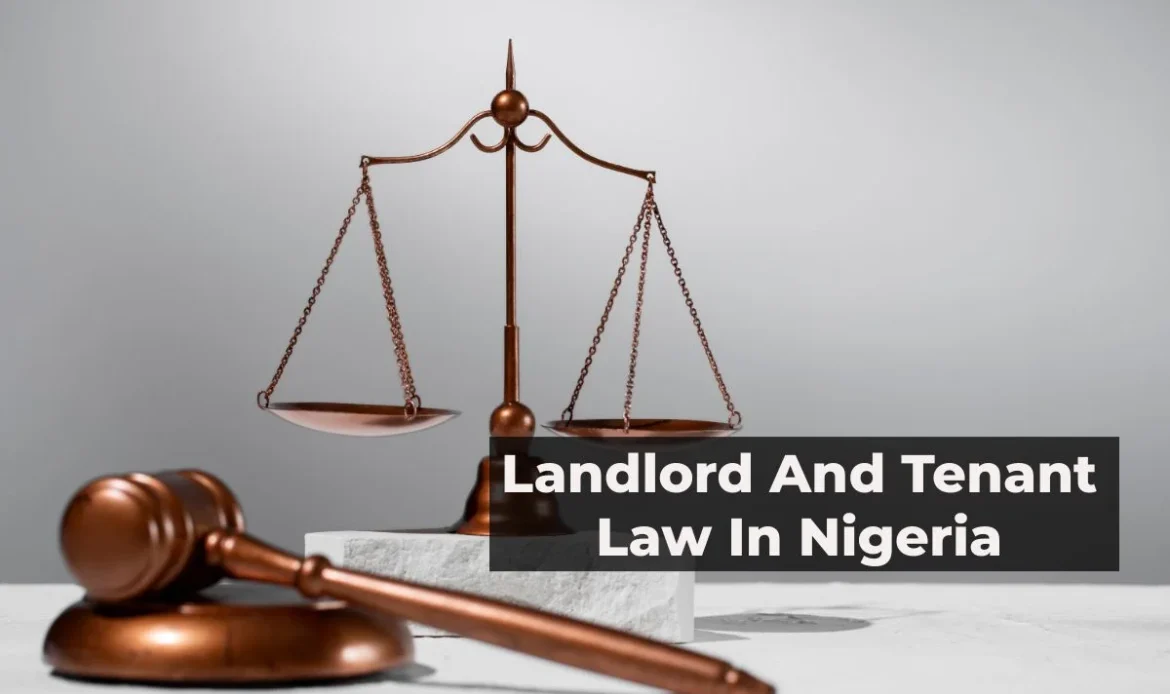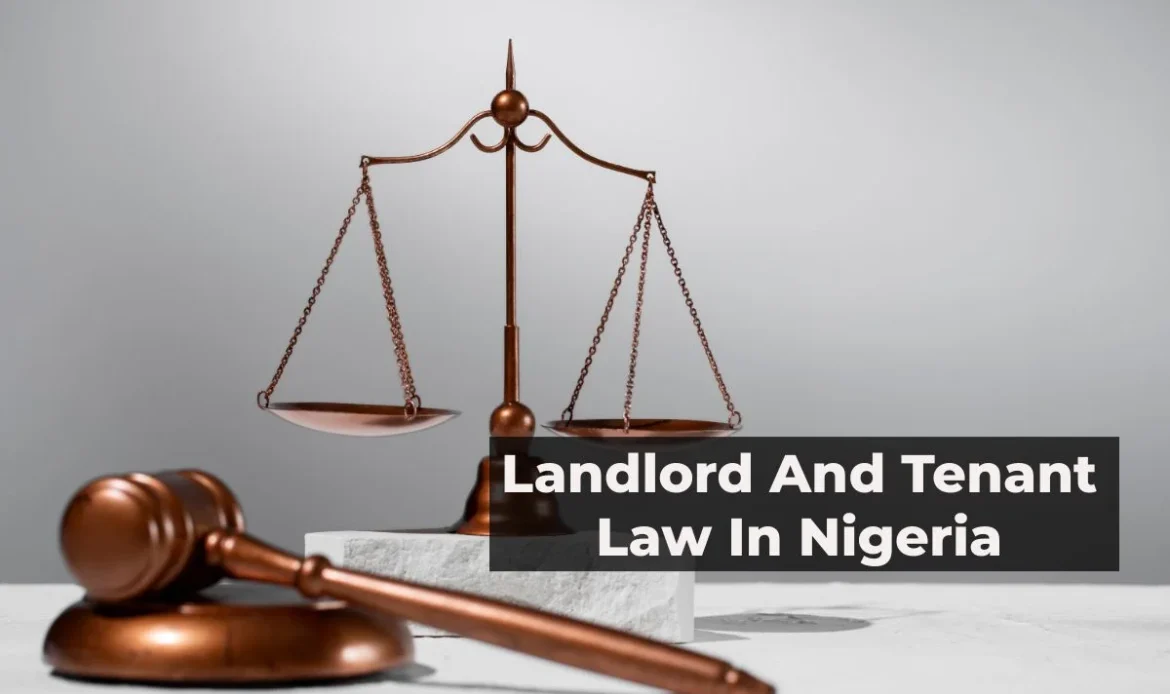
INTRODUCTION
In Nigeria’s bustling real estate market, understanding the legal rights and responsibilities of landlords and tenants is essential for maintaining a harmonious rental relationship. The legal framework governing landlord-tenant interactions is primarily encapsulated in the Nigerian Tenancy Law, which varies from state to state. This article aims to elucidate the legal rights and responsibilities of both parties, ensuring that they are well-informed and protected within the rental landscape.
Understanding the Legal Framework
The Nigerian legal system provides specific regulations that govern the relationship between landlords and tenants. These laws are designed to protect the interests of both parties, but they often come with nuances that vary by region. The Tenancy Law of Lagos State, for instance, may differ significantly from that of Kano or Rivers State. Thus, it is crucial for both landlords and tenants to familiarize themselves with the relevant legislation applicable in their specific state.
Rights and Responsibilities of Landlords
Landlords play a crucial role in the rental relationship, and they possess a set of rights and responsibilities designed to protect their property and investment.
1. Right to Receive Rent:
Landlords have the legal right to collect rent as stipulated in the tenancy agreement. This right is central to their ownership, and they can pursue legal action for unpaid rent.
2. Right to Enter the Property:
Landlords have the right to enter their property for maintenance, repairs, or inspections, provided they give adequate notice to the tenant. Typically, this notice period is 24 to 48 hours, although this can vary depending on the lease agreement.
3. Right to Evict:
If tenants fail to comply with the terms of the tenancy agreement, including non-payment of rent or violation of property rules, landlords have the right to initiate eviction proceedings. However, this process must adhere to legal protocols to avoid accusations of illegal eviction.
4. Responsibility for Property Maintenance:
Landlords are responsible for maintaining the property in a habitable condition. This includes addressing plumbing issues, electrical problems, and ensuring that the property complies with safety regulations.
5. Duty to Provide a Written Tenancy Agreement:
To avoid misunderstandings, landlords must provide a written tenancy agreement that outlines the rights and responsibilities of both parties. This document should include details such as the duration of the lease, rental amount, and any rules regarding the use of the property.
6. Obligation to Return Security Deposits:
Upon the termination of a lease, landlords are obligated to return the tenant’s security deposit, minus any deductions for damages beyond normal wear and tear. Failure to return this deposit without proper justification can lead to legal disputes.
Rights and Responsibilities of Tenants
Tenants also possess a set of rights and responsibilities that ensure their comfort and security while living in a rental property.
1. Right to Enjoy the Property:
Tenants have the legal right to enjoy their rented property without undue interference from the landlord. This includes the right to privacy and the freedom to use the property as specified in the lease agreement.
2. Right to Request Repairs:
Tenants can request necessary repairs from the landlord. If a landlord fails to address urgent repairs that affect the tenant’s safety or comfort, the tenant may have grounds for legal action.
3. Right to a Written Agreement:
Tenants are entitled to receive a written tenancy agreement that outlines their rights and responsibilities. This document serves as a legal reference in case of disputes.
4. Responsibility to Pay Rent:
Tenants are legally obligated to pay rent on time, as specified in the tenancy agreement. Failure to do so may result in eviction proceedings initiated by the landlord.
5. Duty to Maintain the Property:
While landlords are responsible for major repairs, tenants must maintain the property in good condition. This includes keeping it clean, reporting any damages, and not engaging in activities that could harm the property.
6. Obligation to Respect the Terms of the Lease:
Tenants must adhere to the rules and regulations outlined in the tenancy agreement. Violating these terms, such as subletting without permission or causing disturbances, can lead to eviction.
Conflict Resolution
Despite the best intentions of both landlords and tenants, conflicts may arise. Understanding the legal avenues for resolving disputes is essential for both parties.
Mediation:
Before pursuing legal action, landlords and tenants should consider mediation. This process involves a neutral third party who can help facilitate a resolution that is acceptable to both parties. Mediation is often quicker and less expensive than going to court.
Legal Action:
If mediation fails, either party may pursue legal action. Landlords can file for eviction in court, while tenants can seek redress for violations of their rights. It is advisable for both parties to consult legal professionals specializing in tenancy law to navigate this process effectively.
Documentation:
Keeping records of all communications, payments, and maintenance requests is essential for both parties. Documentation can serve as critical evidence in legal disputes, helping to substantiate claims.
The Role of Real Estate Professionals
Given the complexities of Nigerian tenancy laws, engaging the services of real estate professionals can be beneficial for both landlords and tenants. Real estate agents and property managers can help draft tenancy agreements, ensuring compliance with local laws and regulations. They can also mediate disputes, helping to foster better relationships between landlords and tenants.
Conclusion
Understanding the legal rights and responsibilities of landlords and tenants in Nigeria is fundamental for fostering a healthy rental relationship. Both parties have specific rights that protect their interests, along with responsibilities that ensure the property is maintained and that the rental agreement is honored. By familiarizing themselves with these legal aspects, landlords and tenants can navigate the rental landscape more effectively, reducing the likelihood of conflicts and ensuring a harmonious living environment.
For both landlords and tenants, it is crucial to be proactive in understanding their rights and responsibilities. This awareness not only helps in preventing disputes but also contributes to a more positive rental experience. Engaging with legal professionals and real estate experts can provide additional layers of protection and ensure that all transactions comply with the relevant laws. In doing so, both landlords and tenants can enjoy the benefits of a successful rental relationship in Nigeria’s vibrant real estate market.
Contact Us
For premier Understanding The Legal Rights and Responsibilities of Landlords and Tenants in Nigeria, contact Chaman Law Firm today. Our offices are conveniently located in Lagos, FCT Abuja, Ogun State, and the UK. We are readily available to assist you with your legal needs. Whether you require consultation, representation, or ongoing legal support, Chaman Law Firm is your trusted partner in navigating Real Estate Law and Regulations in Nigeria.
Call us at 08065553671 or email us at info@chamanlawfirm.com to schedule a consultation.
- Property Law
- Real Estate Law
- Land Law
- Dispute Resolution Law
- Tort Law
- Surveying Law
- Environmental Law
- Administrative Law
- Contract Law
- Mediation LawConsumer Protection Law
Chaman Law Firm: Your Trusted Legal Partner in Real Estate Law
By choosing Chaman Law Firm, you are selecting a team of dedicated professionals committed to providing exceptional legal services tailored to your unique needs. Let us be your advocate and guide in the complex world of Real Estate Law, ensuring your interests are protected and your goals are achieved.


